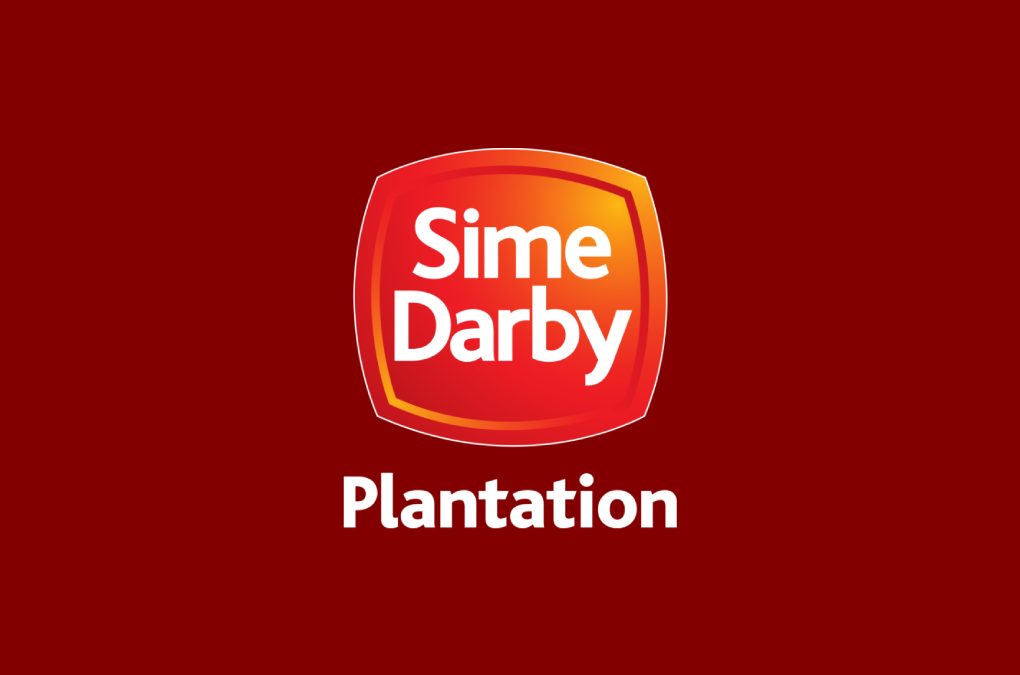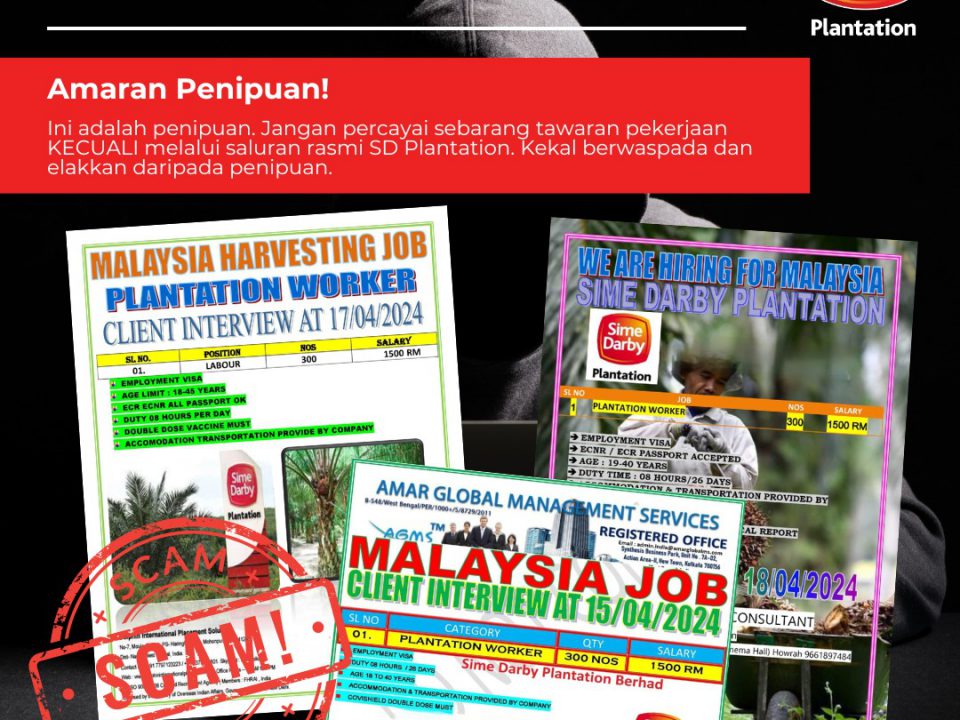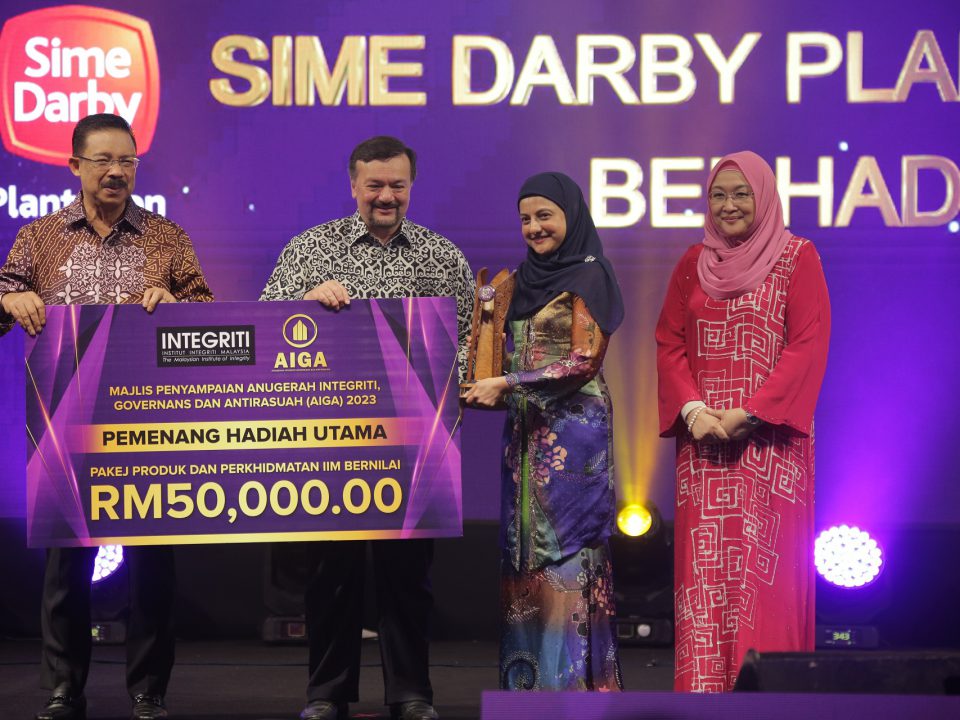Sime Darby Plantation’s Subsidiary Develops Guideline for Implementation of Zero Burning Campaign Amid COVID-19 in Fight Against Haze


Sime Darby Plantation’s Subsidiary Develops Guideline for Implementation of Zero Burning Campaign Amid COVID-19 in Fight Against Haze
- The guideline will complement the Group’s existing ‘Sustainable Community-based Fire Prevention Programme’ and will be used by its Indonesian subsidiary, Minamas Plantation to implement the programme during the current pandemic
- Palm oil industry stakeholders invited to provide feedback on the guideline which may help other companies run similar programmes
West Kalimantan, 30 June 2020 – Sime Darby Plantation (SDP) through its Indonesian subsidiary, Minamas Plantation (Minamas), is taking steps to overcome the challenges of implementing its ‘Sustainable Community-based Fire Prevention’ or ‘Desa Mandiri Cegah Api’ (DMCA) programme by developing a guideline for running the programme amidst the on-going COVID-19 pandemic. Minamas has been running the DMCA programme in fire-prone villages surrounding its operations in various parts of Indonesia since 2014. However, earlier plans to roll out the programme in March this year proved to be challenging due to the movement restriction and social distancing protocols. This setback sparked the urgency for Minamas and its university partner, Universitas Tanjungpura to work together in developing the guideline.
In a virtual forum organised today, various stakeholders in the palm oil industry including the Governor of West Kalimantan, Governor Sutarmidji; Gabungan Pengusaha Kelapa Sawit Indonesia (GAPKI); the Meteorological and Geophysical Department of Jakarta; academicians of Universitas Tanjungpura as well as fellow plantation companies discussed and provided feedback on the guideline. Minamas is looking forward to rolling out its DMCA programme in the West Kalimantan region beginning mid July 2020, once the guideline is finalised. The Company also hopes that the guideline will help other companies run their own community-based fire prevention programmes whilst maintaining health and safety from the COVID-19 virus.
Despite the challenges posed by the pandemic, Minamas Plantation’s Chief Executive Officer, Shamsuddin Muhammad, said it is still crucial for the Company to remain steadfast in finding ways to work together with stakeholders, especially the local communities, to continue the efforts of preventing fire occurrences and reducing the number of hotspots in the region.
“While our governments and healthcare providers focus on stemming the COVID-19 pandemic, we must not take our eyes off other health and environmental threats including the potential of an upcoming haze. This is a complex problem which needs to be tackled through the efforts from multi stakeholders. As one of the players in the palm oil industry, we want to be part of the solution to this annual issue, but we cannot do it alone. Our collaboration with various stakeholders, including local communities surrounding our operations, not only to monitor fire occurrences but also adopt Zero Burning practices as part of daily activities, are crucial in the fight against haze,” said Shamsuddin.
Through the DMCA programme, Minamas had collaborated with reputable local Indonesian university experts who would spend at least six months living with the local communities in the villages to raise awareness on the importance of environmental protection and sustainable agricultural practices. This includes the education to stop the practice of open burning and finding other sustainable and viable alternatives to generate income.
“Our partnership with Universitas Tanjungpura for this year’s edition of our Communitybased Fire Prevention Programme in West Kalimantan is yet another important milestone in our Zero Burning initiative. We are looking forward to working with the academicians to further strengthen our fire-prevention preparedness and collaboration with the local communities to fight haze, even in the face of the challenging restrictions posed by the pandemic,” added Shamsuddin.
To date, Minamas’ DMCA programme has covered more than 60,000 beneficiaries in 29 villages or about 161,000 ha of land surrounding the Company’s 11 subsidiaries in Sumatera and Kalimantan. This year, Minamas is looking to further enhance the programme by including a Reward Program to boost the involvement of local communities’ as well as the fire response rate of the villages that are monitoring their respective areas. The Company will also be implementing a new approach by collaborating with the teaching community to provide fire prevention education to the younger generation. Aptly named ‘Guru Peduli Api’ or Fire-concerned Educators, the programme aims to provide a series of training to 662 principals and teachers in 60 schools, aiding them to become agents of change in their respective schools to promote Zero Burning practices and fire prevention knowledge to students.
According to SDP’s Group Managing Director, Mohamad Helmy Othman Basha, the Group’s commitment to Zero Burning spans over 30 years, dating back to the 1980s when SDP first commercially introduced the ‘Zero Burning Replanting Technique’; the gold standard of practice for most established palm oil companies today. “Zero use of fire for land preparation and establishing effective monitoring and prevention, as well as proactive firefighting measures within the area of 5km radius from our operational boundaries are part of the Zero Burning commitment enshrined in our Responsible Agriculture Charter. Recognising that haze as a result of fire is a transboundary issue, we also commit to influence other stakeholders including local communities surrounding our operations to adopt the same stance,” added Helmy.
Sime Darby Plantation (SDP) Zero Burning Initiatives
SDP’s commitment to Zero Burning spans over 30 years, dating back to the 1980s when the Company first commercially introduced the ‘Zero Burning Replanting Technique’. This technique of clearing land by felling and chipping off old trees, and leaving them to decompose on the ground, is the gold standard of practice for most established palm oil companies today. It was accorded the United Nations Environment Programme’s (UNEP) Global 500 Roll of Honour for Environmental Achievement during the Rio Earth Summit in 1992.
Over the years, the Company has extended its fire monitoring and assistance commitment to reach neighbouring areas within 5km radius of its estate boundaries. SDP’s monitoring system of fire occurrences and hotspots utilises satellite data and the Company will immediately conduct on-site verification and assistance to put out fire as soon as it is alerted by the system. In the past 1 year, SDP’s hotspots monitoring system has detected 2,933 hotspots which took place in and around the Company estates’ boundaries. Upon on-site verification, 98% of confirmed fires occurrences were outside of SDP’s estate boundaries. The Company also maintains fully equipped and well-trained fire-fighting teams at all its operations to be deployed whenever necessary.
Working closely with local communities is an integral part of the SDP’s Zero Burning initiative. SDP helps to initiate ‘Masyarakat Peduli Api’ (Local Communities Fire Awareness Movement) within neighbouring local communities in its operations in Indonesia as part of its initiative to increase local communities’ awareness and participation in fire prevention. SDP also runs its Community-based Fire Prevention or ‘Desa Mandiri Cegah Api’ (DMCA) programme in collaboration with local Indonesian universities with the aim to educate local communities in fire-prone villages about sustainable agricultural practices as well as sustainable and viable alternatives to generate income.


